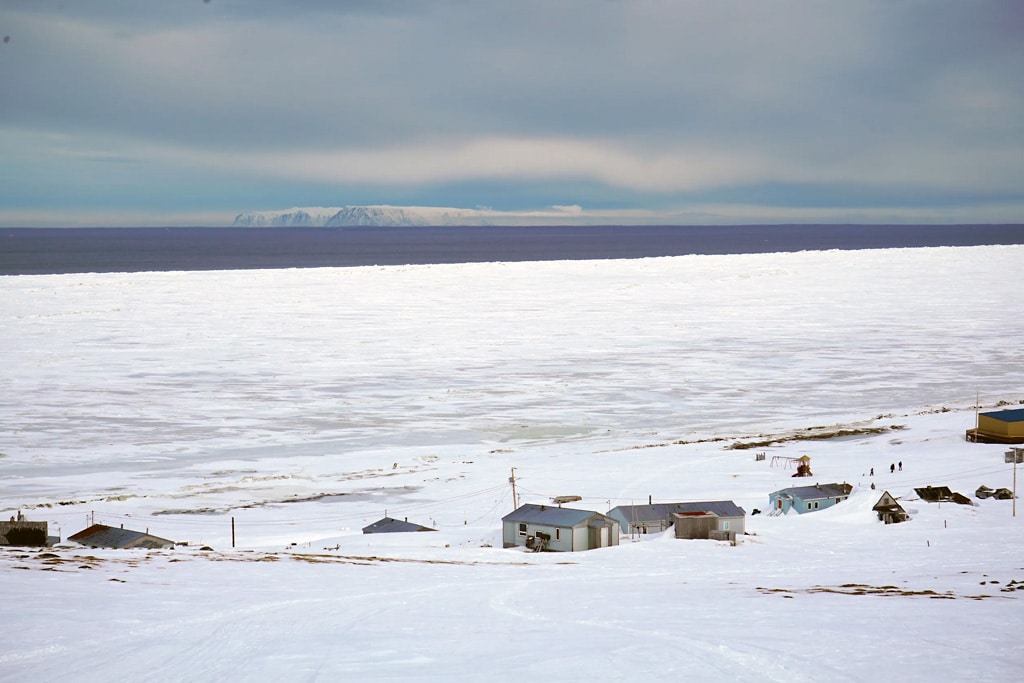The village of Wales (Kiŋigin) is one of the oldest communities in the Bering Strait region. The Inupiaq language name for Wales is Kingigin, named for the mountain that rises above it. Wales people refer to themselves as Kingikmiut, “the people of Kingigin.” Wales was also one of the largest villages in the region in pre-historical and post-contact times with population estimates between 500 – 600 people.
The village population was decimated by epidemics of disease over the years. The Spanish Influenza epidemic of 1918 reduced the population by approximately one-half. The present population of Wales is about 162.
The Native Village of Wales was organized under the Indian Reorganization Act of 1934. The tribes ratified corporate charter, and constitution and by-laws were approved by tribal members and the United States Department of Interior, Office of Indian Affairs on July 29, 1939.
Under Section 1 of the charter, the purpose was to “enable the Village and its members to do various kinds of business for their good…” Its powers also included doing “any …activity that will better the condition of the Village and its members.” These rather broad powers enabled the tribe to acquire and dispose of property, make contracts, and seek funds for its purposes. One of the businesses first started was the Wales Native Store.
For many years, this store was the only one serving the village, providing staple foods, hardware and fuel. Supplies were delivered annually by the North Star, a ship operated by the Bureau of Indian Affairs. Sacks of flour, sugar, barrels of butter and cases of canned goods were off loaded. The fuel delivered consisted of sacks of coal and 55 gallon barrels of heating fuel and gasoline. For many years, the tribal council was the only governing body in Wales. The council passed a number of ordinances, including ordinances for dog control, curfew, etc.
In April, 1964, the community organized as a municipality under the State of Alaska and the newly formed Wales City Council then passed its own local ordinances and provided enforcement. The ordinances that the present IRA Council operate under include the tribal membership ordinance and the children’s code of ordinances. The latter ordinance empowers the council to form a Tribal Court and hold hearings for tribal adoptions and the protection of children in need.
Source: State of Alaska DCRA
| Name | Title |
|---|---|
| Michele Ongtowasruk | President |
| Joanne Keyes | Vice President |
| Jessie Ontowasruk | Secretary |
| Stanley Oxereok | Treasurer |
| Debra Seetook | Council Member |
| Anna Oxereok | Council Member |
| Tanya Pelowook | Council Member |
(updated 6/2020)

